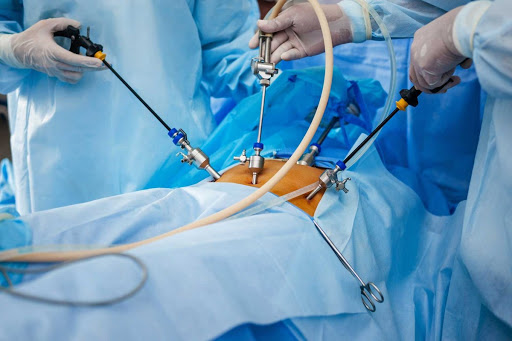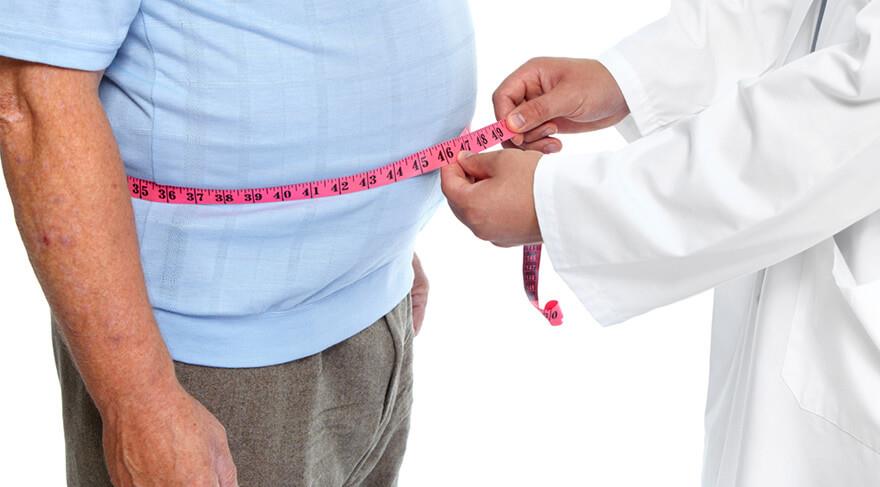Treatments in our contracted health institutions
 What are the benefits of laparoscopic surgery?
What are the benefits of laparoscopic surgery?
Intervention with a small cut
- Less risk of wound infection
- Shorter hospital stay
- Early healing process
- Much less pain
- Less need for painkillers
- More cosmetic due to the absence of large incisions in the body
Who is the Gastric Sleeve Surgery operation suitable for?
If your Body Mass Index (BMI) is over 35 and you have at least one or two diseases such as hypertension, coronary heart disease, type 2 diabetes, insulin resistance, osteoarthritis (rheumatism), sleep apnea syndrome, fatty liver, etc. If your Mass Index (BMI) is directly over 40, your age is between 18 and 65, and there is no obstacle for you to receive general anesthesia, you are suitable for this operation
 Which Tests Are Performed Before Obesity Surgery?
Which Tests Are Performed Before Obesity Surgery?
Before gastric sleeve surgery, the patient is expected to lose weight with diet and exercise first. If the person cannot lose weight in this way and is at risk for some diseases or if the body mass index is 40 and above, then the option of surgery is considered. Before the bariatric surgery, whether the person is suitable for the operation is decided by the physician by looking at the results of some tests. Dr. Gürhan Güngör firstly to measure the body mass index of his patient who applied to him for stomach reduction surgery; takes height, weight and body measurements. Afterwards, people whose body mass index is suitable for the operation;
- Detailed Blood tests
- Psychological assessment
- Cardiovascular diseases
- Anamnesis (story) evaluation
- EKG shooting
- Pulmonary Function Test
- Upper abdomen USG
- Endoscopy
- Checks such as lung chart are made.
As a result of these, it is expected that people who are deemed suitable for weight loss surgery should be ready for surgery in a real sense.
If the physician does not believe that the patient will really quit his eating habits, if the patient gives signals that he will continue to eat in this way, he may not perform the operation. Because in this case, the patient will return to his old self after a while. Such operations require high motivation and cooperation of the patient. After sleeve gastrectomy, you should definitely abandon your bad diet, bad habits, and actions that harm your health, such as inactivity. The success of the operation is closely related to the person himself. For this, the individual should be ready to acquire healthy habits.
What stages do I go through before the surgery?
A meeting with our doctor is organized during the time you apply to us for the operation. More Then the laboratory stage is passed and the necessary blood tests are done. stomach endoscopy examination, lung After the film and ECG examinations are done, the necessary additional consultations according to the patient’s health status are carried out in detail by our doctors.
How long does the pre-operative process take?
Appointments for all your examinations and examinations are organized by our team, and as determined, they start in the morning and end with an estimated 3 hours of collaboration.
What am I expected to do for pre-operative tests?
A fasting of at least 6-8 hours is required for our blood, examination and endoscopy.
When will I start losing weight?
After the operation, you start to lose 10% to 20% of your current weight on average in the first 3 months, depending on your compliance with the specially determined diet. In the following months, you will give 30% to 35% in the next 6 months and 40% in the first year.
Do patients lose excessive weight after surgery?
After the patient reaches his ideal weight, the weight loss process slows down and stops.
When can one return to normal life after the operation?
Although this varies depending on the person, since the operation is performed with the closed (laparoscopic) method and the hospital stay is shortened, the person usually takes the 4th-7th day of the operation. day, he can return to his normal life.
What is Gastric balloon surgery
For people who are not obese but want to lose weight, it is ensured that they eat less thanks to the balloon placed in the stomach.
Non-Surgical Procedures in Obesity Intragastric Balloon Application (Gastric Balloon Application) In the treatment of obesity, there are endoscopic procedures as well as surgical procedures. Among them, the most used Intragastric Balloon (Stomach Balloon) Application.
To Whom Can It Be Done?
- It can be applied to anyone who can tolerate endoscopy.
- It can be applied to patients who cannot tolerate surgery, patients who do not have a hiatal hernia larger than 3 cm (stomach hernia) and gastric ulcer, and individuals who have had previous gastric surgery, psychiatric disease, and individuals who do not have alcohol or drug addiction. Indications - In order to weaken the patients before the operation, to reduce the risk of complications and death, if major surgery is to be performed in those with a BMI (BMI) of 40 and above, and those with a BMI (BMI) of 35 and additional diseases,
- It is applied to patients who cannot lose weight despite diet and exercise programs with BMI (BMI) above 30 kg/m2.
- Method is not surgery.
- The procedure is performed in the endoscopy unit in 15-20 minutes under sedoanalgesia.
- Patients stay in the hospital for 1 day and are provided with food in the early period after the procedure.
- Thanks to the newly developed balloons (Adjustable Gastric Balloon System), the patient has the opportunity to stay in the gastric balloon for 1 year.
- With the help of appropriate diet and exercise programs, it is possible to lose 30-50 kg of weight in 1 year.
- With the Adjustable Gastric Balloon System, the balloon can be inflated in patients whose weight loss is insufficient or stopped within a year.
- After the old balloon is removed, the new balloon can be put back into the stomach if the patient wishes.
- It is more economical than bariatric surgery.
What is Stomach Botox treatment ?
Stomach botox is the process of injecting approximately 200-300 units of botox into the stomach wall with a 4 mm small endoscopic needle performed with endoscopy.
During the procedure, patients are given sedation anesthesia. Patients do not feel any severe pain during and after the procedure.
After the procedure, patients are kept 1-2 hours under observation and return to their daily lives.